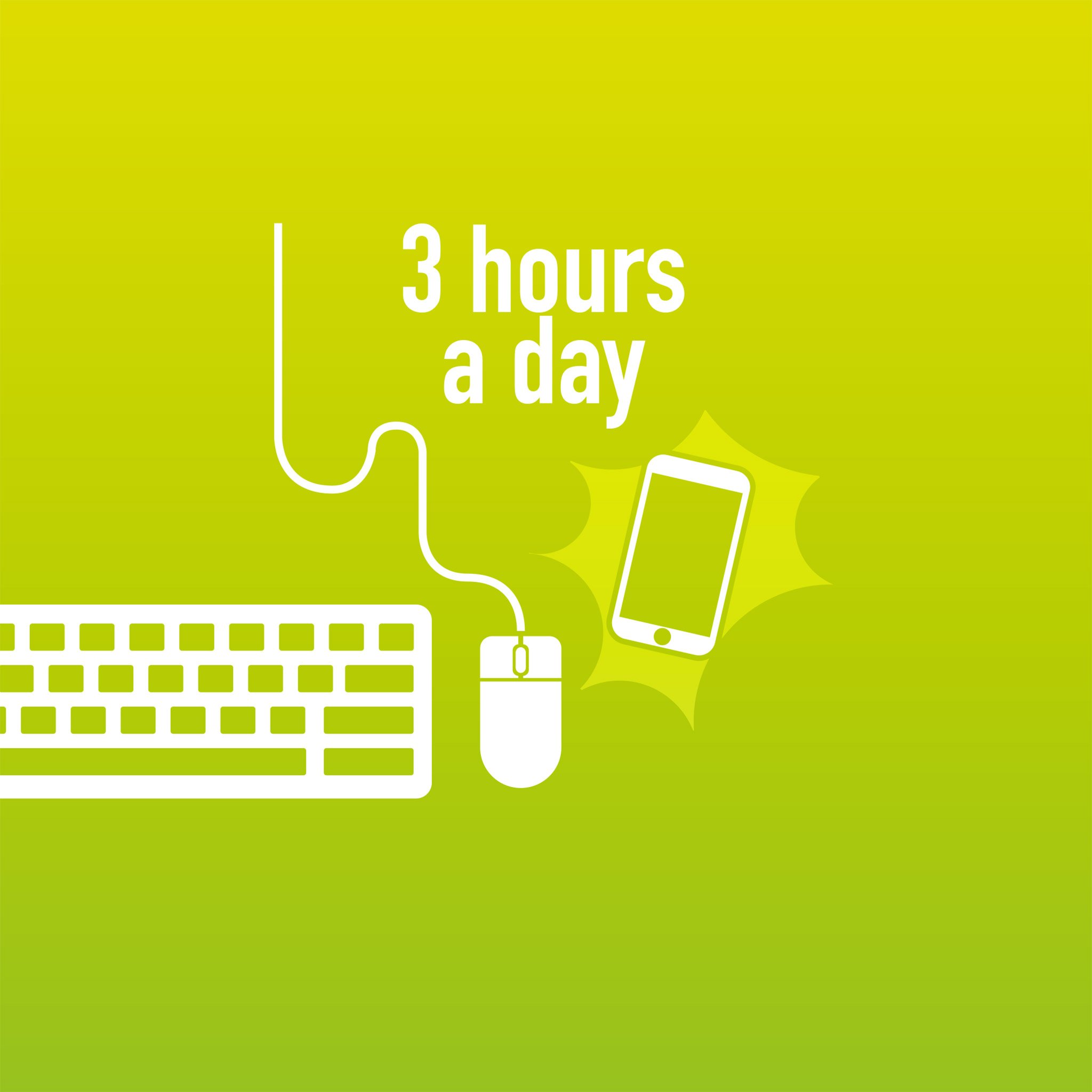Smartphone users turn on their devices on average about 80 times a day, i.e. approximately every twelve minutes. They are unlocked 50 to 60 times in the process, which means every 18 minutes on average. 15% of the total service life is accounted for by the WhatsApp messaging service, 9% by Facebook and 13% by games. Usage by the 17 to 25-year-old group is particularly intense: they use their smartphones for about three hours a day.
The data comes from a large-scale experiment on smartphone usage that has been running since the beginning of 2014. The molecular psychologist from Ulm, Prof. Christian Montag, and assistant professor of computer science at the University of Bonn, Alexander Markowetz, jointly developed the Android app Menthal, which records daily smartphone usage and transmits the data anonymously to Bonn. The app has been installed a total of about 300,000 times so far and the first evaluations are now available. They are based on about 60,000 datasets.
Alexander Markowetz sees the results as alarming. After all, the constant interruptions mean that the smartphone users cannot concentrate on one individual activity. The studies of happiness researcher Mihaly Csikszentmihalyi show that we need about 15 minutes before we can fully devote our attention to a particular task and enter into a state of flow. The constant interruptions by the smartphone prevent that and lead to inefficiency and lack of happiness, according to Markowetz.
Markowetz therefore recommends defining digital etiquette for smartphone usage. Some companies have already banned the sending of professional e-mails to colleagues in the evening hours and in some cases even turn off their mail server. The real problem may however be the disruptions of the concentration phase. The disruptions could be prevented by defining mobile-free spaces, for example.
The Menthal app continues to be available in the Google Play Store and provides users with evaluations of their own smartphone usage. A version of the program is not planned for Apple iOS. The results of the study by Alexander Markowetz are available as an e-book. (Source: Markowetz/rf)
